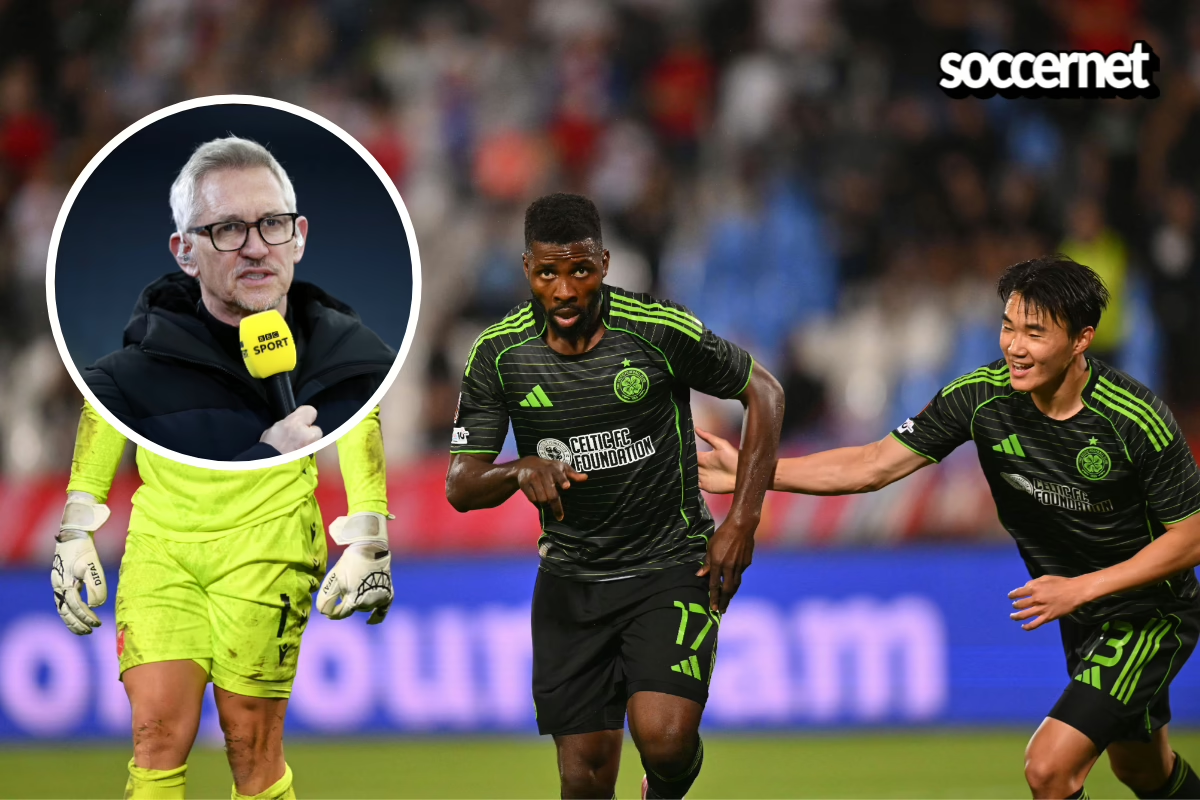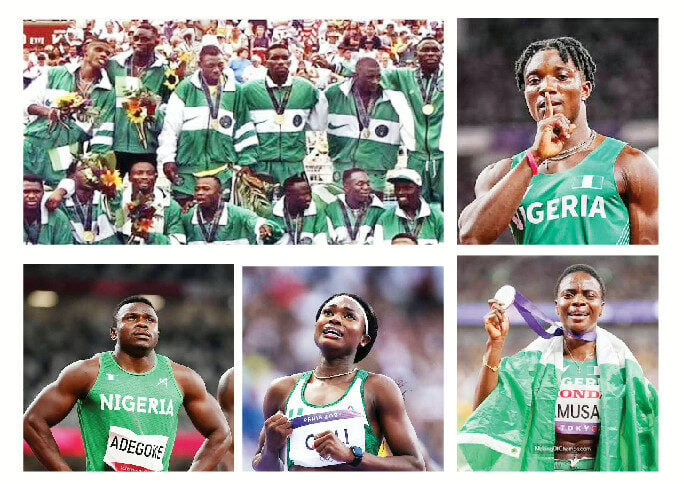Over the past six and a half decades, Nigeria’s journey in the world of sports has been a blend of triumphs and setbacks. Given the nation’s vast population exceeding 200 million and its abundant athletic talent, the achievements might seem modest. Nigerian competitors have secured a total of 27 Olympic medals-three gold, eleven silver, and thirteen bronze-mainly in athletics and boxing, with football contributing one gold, one silver, and one bronze medal.
At the Commonwealth Games, Nigerian athletes have collectively earned 236 medals, including 70 gold, 75 silver, and 91 bronze. On the continental stage, particularly at the African Games, the country boasts an impressive haul of 1,447 medals, with 517 gold, 462 silver, and 448 bronze. In football, Nigeria stands as Africa’s most decorated nation, having won 58 trophies alongside 29 silver and 27 bronze medals across both men’s and women’s competitions. This history paints a picture of a nation that once soared high in global sports but now faces a decline that mirrors broader national difficulties.
Nigeria has traditionally been a dominant force in African sports. From the vibrant football arenas to the boxing rings, Nigerians have consistently demonstrated immense enthusiasm and skill across various disciplines. Yet, despite this rich legacy and a deep reservoir of talent, structural obstacles have impeded the country’s ability to maintain consistent success on the international stage.
Reflecting on the Glory Years
To grasp the extent of the current downturn, it’s essential to revisit the “glory years” spanning the 1980s through the early 2000s, when Nigeria was a formidable sports contender.
Football: The 1990s marked the pinnacle for the Super Eagles. The 1994 team, brimming with exceptional talent, remains a gold standard. Achieving a world ranking of fifth-a position unimaginable today-this squad, led by the commanding Stephen Keshi, featured dazzling playmakers like Jay-Jay Okocha, prolific scorers such as Rashidi Yekini, and dependable figures like Sunday Oliseh and Finidi George. They clinched the Africa Cup of Nations title in 1994 and made a memorable debut at the World Cup the same year. The crowning achievement was the 1996 Olympic Gold Medal, where the under-23 “Dream Team” triumphed over football powerhouses Brazil and Argentina, boldly announcing Nigeria’s arrival on the global football scene.
Athletics: Nigerian dominance was equally evident on the track and field. Chioma Ajunwa’s historic long jump gold at the 1996 Olympics remains the country’s sole individual Olympic gold medal. The relay team comprising Davidson Ezinwa, Osmond Ezinwa, Olapade Adeniken, and Chidi Imoh was a formidable force feared by rivals. Mary Onyali-Omagbemi consistently graced international podiums as a sprinting icon. At both the Commonwealth and African Games, Nigeria was a perennial contender for top honors.
Basketball and Other Disciplines: The national basketball teams, D’Tigers and D’Tigress, were competitive on the continental stage. Meanwhile, boxing produced champions, table tennis saw stars like Atanda Musa, and weightlifting contributed to the medal tally. Success was widespread across multiple sports, reflecting a well-rounded sporting culture.
The Steep Decline
Jumping ahead to 2025, the current scenario is far less encouraging. The decline has been steady and unmistakable.
Football: The once-feared Super Eagles now evoke concern rather than confidence. Missing out on consecutive Africa Cup of Nations tournaments in 2015 and 2017 was once unthinkable. Although reaching the final in 2023 offered a flicker of optimism, fundamental problems remain: erratic performances, a lack of a unified playing style, and an overdependence on the individual brilliance of foreign-born players. The domestic league has deteriorated, plagued by insufficient funding, substandard facilities, and ongoing leadership turmoil. The youth development system that once nurtured stars like Yekini and Okocha has all but vanished.
Athletics: The thunderous cheers for Nigerian athletes have dwindled to faint echoes. The country now struggles to claim even a few medals at major global competitions, as the pipeline producing world-class sprinters and jumpers has broken down. Training infrastructure-including tracks, equipment, and sports science support-is either outdated or nonexistent.
Governance Challenges
At the heart of this decline lies poor administration. Sports governance in Nigeria is riddled with political interference, corruption, and inefficiency. National sports federations have become battlegrounds for internal conflicts, with legal disputes and factionalism overshadowing athlete development. Administrators focus disproportionately on senior national teams seeking immediate success, neglecting grassroots and youth programs that are essential for long-term growth. Reports of embezzlement, unpaid athlete allowances, and inflated budgets are rampant, with funds meant for athlete support often disappearing without trace.
The once-thriving school sports system that produced legends like Segun Odegbami and Falilat Ogunkoya has crumbled. Competitions such as the Principals’ Cup and Headmasters’ Cup are now memories, and there are no effective youth development initiatives to cultivate emerging talent. Young athletes are left to rely on personal grit or the generosity of private academies.
At the recent World Athletics Championships in Japan, Nigeria’s poor treatment of its athletes was spotlighted when world record holder Tobi Amusan publicly criticized the Athletics Federation of Nigeria (AFN) for supplying substandard kits. In a viral video, Amusan expressed her frustration, accusing Nigerian sports officials of embarrassing the nation on the world stage.
Decaying Facilities
From the MKO Abiola Stadium in Abuja, which suffers from an unplayable pitch despite costly renovations, to the dilapidated National Stadium in Surulere-now a haven for vagrants and informal worship gatherings-the physical evidence of Nigeria’s sporting decline is stark. Athletes face severe limitations in accessing modern training venues, sports science resources, and medical care.
Although the government allocates funds for sports infrastructure, a lack of maintenance culture means many facilities fall into disrepair. Poor management leads to rapid deterioration, expensive repairs, and safety concerns. Despite Nigeria’s wealth of young talent, the absence of structured grassroots programs means many promising athletes miss out on proper training and exposure, weakening the nation’s talent pipeline.
Corruption’s Grip
Restoring confidence among private investors and attracting major sponsorships requires tackling corruption head-on. Ahmed Shuaibu Gara Gombe, a respected sports analyst and former chairman of the Gombe State Athletics Association, highlights entrenched problems that stifle sports development and undermine the dreams of dedicated athletes.
Gombe points to the National Sports Commission’s (NSC) failure to implement merit-based selections within sports federations. Coaches, who should identify and nurture talent, are often pressured to favor athletes with influential connections, sidelining deserving competitors. “This practice denies opportunities to talented athletes and demoralizes those who depend solely on skill and hard work. It’s common for athletes from privileged backgrounds or with powerful patrons to secure team spots, leaving much of Nigeria’s talent untapped,” he explains.
Charting a New Course
Experts call for an urgent revamp of Nigeria’s national sports policy, pinpointing management as the core issue. Sports sociologist Tolu Ogundeji describes the current state as a complete collapse of sporting culture. “Physical education is no longer valued. Sports is seen as a pastime for those less academically inclined rather than a legitimate career path. The government treats sports as event management, not as a sector for development,” he asserts.
Ogundeji advocates for legislative reforms to mandate sports programs in primary and secondary schools, the revival of competitive inter-school tournaments, and a national shift in perception to recognize sports as a vital industry for youth engagement, health promotion, and national identity.
Makurdi-based sports journalist Richard Terver attributes the decline to poor leadership and corruption. “We have unqualified individuals in key positions, appointed through political patronage rather than expertise or passion. Accountability is lacking. Although the League Management Company (LMC) has made efforts, systemic sabotage hampers progress.”
Terver recommends merit-based appointments of experienced sports managers, marketers, and technocrats, coupled with transparent audits of all sports federations. He stresses the importance of public-private partnerships (PPPs) to shield sports from government financial instability.
Former athlete Gbenga Bobade highlights the absence of a comprehensive welfare system for athletes as a critical obstacle. “Today’s athletes are abandoned after representing the country. They face injuries without insurance and worry about their families’ basic needs. How can they perform at their best under such conditions?”
Bobade proposes establishing an Athletes’ Welfare Commission funded through a portion of sponsorship revenues and government allocations. “This body should oversee insurance, pensions, and post-retirement support programs. When athletes feel secure, they can focus fully on achieving victory.”

















